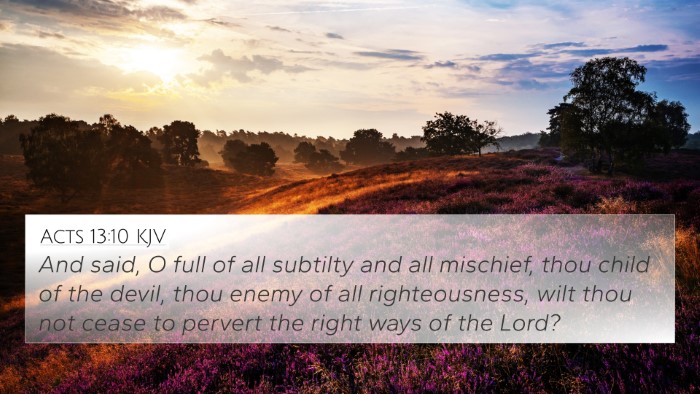Understanding Luke 3:7 - A Comprehensive Analysis
Bible Verse: Luke 3:7 (“Then said he to the multitude that came forth to be baptized of him, O generation of vipers, who hath warned you to flee from the wrath to come?”)
Meaning and Interpretation
This verse marks a pivotal moment in John the Baptist's ministry. Here, he addresses the multitude coming to him for baptism, indicating a critical warning about their spiritual condition.
- Warning of Judgment: John’s use of "generation of vipers" illustrates the seriousness of their hypocrisy and warns them about the impending judgment, reflecting the themes found in Matthew 12:34 and Matthew 23:33.
- Call to Genuine Repentance: The call to "flee from the wrath to come” signifies the need for true repentance rather than mere ritualistic practices. This theme resonates with Ezekiel 18:30 and Acts 3:19.
- Misplaced Assurance: The multitude's confidence in their Jewish lineage (represented in Luke 3:8) as a means of salvation parallels the teachings about faith versus heritage found in Romans 2:28-29.
Cross References
To deepen the understanding of Luke 3:7, several related scriptures can be examined:
- Matthew 3:7-10: This passage mirrors John’s warning about the importance of bearing fruits worthy of repentance.
- Ezekiel 33:11: God expresses His desire for the wicked to turn from their ways, similar to John's call for repentance.
- Matthew 23:33: Jesus echoes John’s sentiment on the eternal consequence of rejecting righteousness.
- Colossians 3:6: Warns of the coming wrath of God, thus aligning with the theme of caution against complacency.
- Romans 2:5: Describes the day of wrath, reinforcing the urgency of John's message.
- John 8:44: The reference to “vipers” may also be contextualized through Jesus’ identification of falsehoods among the Pharisees.
- Acts 2:40: Peter’s similar exhortation to save oneself from the corrupt generation resonates with John’s warning.
Comparative Bible Verse Analysis
Contextually, Luke 3:7 serves as a critical bridge linking themes of judgment and repentance. It resonates throughout both the Old and New Testament.
Engaging with these parallel scriptures through Bible verse cross-references aids in forming a cohesive understanding of God's overarching narrative about mercy and responsibility.
Thematic Bible Verse Connections
This verse encapsulates major biblical themes:
- Hypocrisy and Authenticity: Highlighted across prophetic literature and the Gospels.
- Repentance: Central to both John the Baptist and Jesus’ ministries.
- Judgment: Themes of divine judgment appear in both the prophetic books and epistles.
These connections enhance our understanding of scripture’s call to live a life genuinely reflective of one's faith.
Tools for Bible Cross-Referencing
For those studying Luke 3:7, utilizing a Bible cross-reference guide can provide context and related verses. Such tools enrich the study experience, allowing for:
- Identification of connections: Discerning the links between Old and New Testament scriptures.
- Cross-reference Bible study methods: Engaging deeper theological questions and themes emergent in the text.
- Comprehensive Bible cross-reference materials: Enabling a holistic view of the biblical narrative.
User Intent: Finding Related Verses
When one searches for verses that relate to Luke 3:7, they are often trying to draw connections and consolidate understanding. Some inquiry examples include:
- What verses are related to the themes of repentance in this scripture?
- How does Luke 3:7 connect with similar warnings in the writings of Paul?
- What similar messages are conveyed in the Gospels?
Engaging with these questions can lead to a robust study, revealing the richness of Scripture.
Conclusion
Luke 3:7 serves as an important message of warning and invitation towards genuine repentance. It challenges both its original audience and contemporary readers to introspect their spiritual lives and respond authentically to the call of righteousness. Through utilizing cross-referencing Bible study techniques, one can explore deeper truths and connections across the biblical narrative, enriching their understanding and application of the Scripture.













